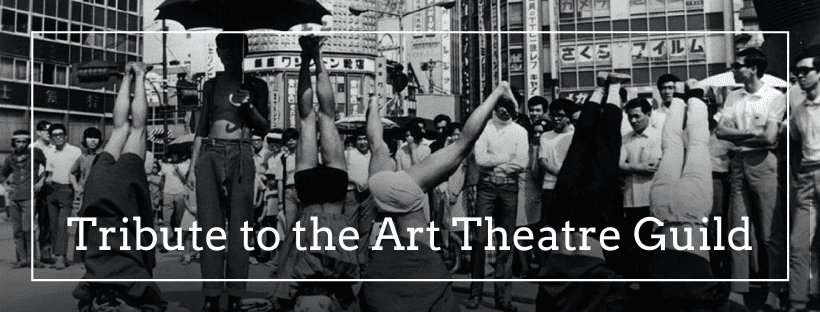The last film of Ko Nakahira is one that definitely stands out in both ATG and his own filmography, since it was shot in France and includes intense elements of European (French) cinema in the way it unfolds, although it also includes some elements that make it distinctly Japanese.
Kyoko and Juzo used to be a couple but have not seen each other for over a decade, with her actually getting married with a rich, middle-aged man in the meantime. The two meet again in Paris in 1972, and decide to take a trip together, where they mostly talk about politics and revolution in particular, their relationship in the past, and have sex. The sudden meeting with Kenzo, a man Kyoko met from her current husband, and his European partner leads them to reevaluate sex and their relationship, while a bit later, they attend a festival of classical music. While Kyoko essentially seems to be on vacation, Juzo's troubled demeanor seems to have roots to something else, which is revealed at the end of the film.
The European art-house aesthetics are prevalent in the movie, with a very thin story that seems to aim at making some comments regarding what happened to the revolutionaries of the 60s, while presenting the continent from the perspective of the Asians. At the same time, the many erotic scenes give a hint that Nakahira may have been inspired by “Emmanuelle”, with the protagonist also looking somewhat like Sylvia Kristel on occasion. This does not mean that “Variation” is as titillating as the French movie, but the pinku elements are definitely here, and done in much more tasteful fashion than in the Japanese productions of the category.
Apart from that, the narrative follows the recipe of the road movie, with the two protagonists moving around France, staying in cheap hotels, making love, meeting various people, and experiencing Europe. The way the continent is presented, however, once more in an Asian movie, is an idealistic and romanticized version of it, where freedom in all aspects is the rule, in complete antithesis with life in Japan. At the same time, the people who were part of the events of 1968 are presented as ones stuck in the past, with both protagonists exhibiting this sense, although in completely different ways, while sex seems to be one of the few ways out. Furthermore, apart from these somewhat cliched comments, the movie lags significantly on occasion, with the performance scene in particular being unnecessarily lengthy, even if another, well-shot erotic sequence including voyeurism, is also part of it.
Check also this interview
The comments about how and why the revolution failed are quite interesting to watch, in the brief moments they appear in the film, with the disconnection the particular people had from the masses, and the fact that the latter are not prone to change, emerging as two of the key reasons. As such, the roots, purpose, and necessity of revolution is questioned too, in a rather intriguing part of the narrative, which seems, though, too on-the-nose, and even disconnected from the rest of the movie. On the other hand, the way the beginning of the movie is connected in the end with the rest of the story, is ingenious, essentially giving sense and purpose to the whole story, while explaining particularly Juzo's mentality.
Also of note is Shinpei Asai's cinematography, which again follows European arthouse paths, particularly in the way it includes numerous close ups, especially on Reiko Asoo. Its best trait, however, is how voyeurism becomes part of the narrative, with the old lady from across the window being a central medium for this approach, with her suggesting how the rest of the world is looking at the youths (the revolutionaries if you prefer). Furthermore, the way that Kyoko eventually takes her place seems to signify how she has moved towards this ‘demographic' (the aforementioned rest of the world) and how Juzo has not, which also sends a message regarding his fate. Truth be told, there are a number of elements here that can be interpreted differently as a socio-political metaphor, but they are largely lost within the eroticism and the mundanity that dominate the narrative. Michio Suwa's editing also moves in the aforementioned path, with the pace being quite slow, and even self-indulgent on occasion, as in the unnecessarily lengthy scenes that are found throughout.
Both Reiko Asoo as Kyoko and Ado Sato as Morii play their parts with a detachment that works well for the style of the movie, while their evident beauty also adds to the erotic element here. The scene when they exhibit a slight sense of jealousy is where their acting truly shines, in two performances, though, that are purposefully low key.
Probably the most European-like production of ATG, “Variation” has its merits, particularly for the beginning and ending and the eroticism that emits, but the many cliches, the lagging, and the sense of disconnection that permeates it place it on a lower level than the majority of the company's productions..

















